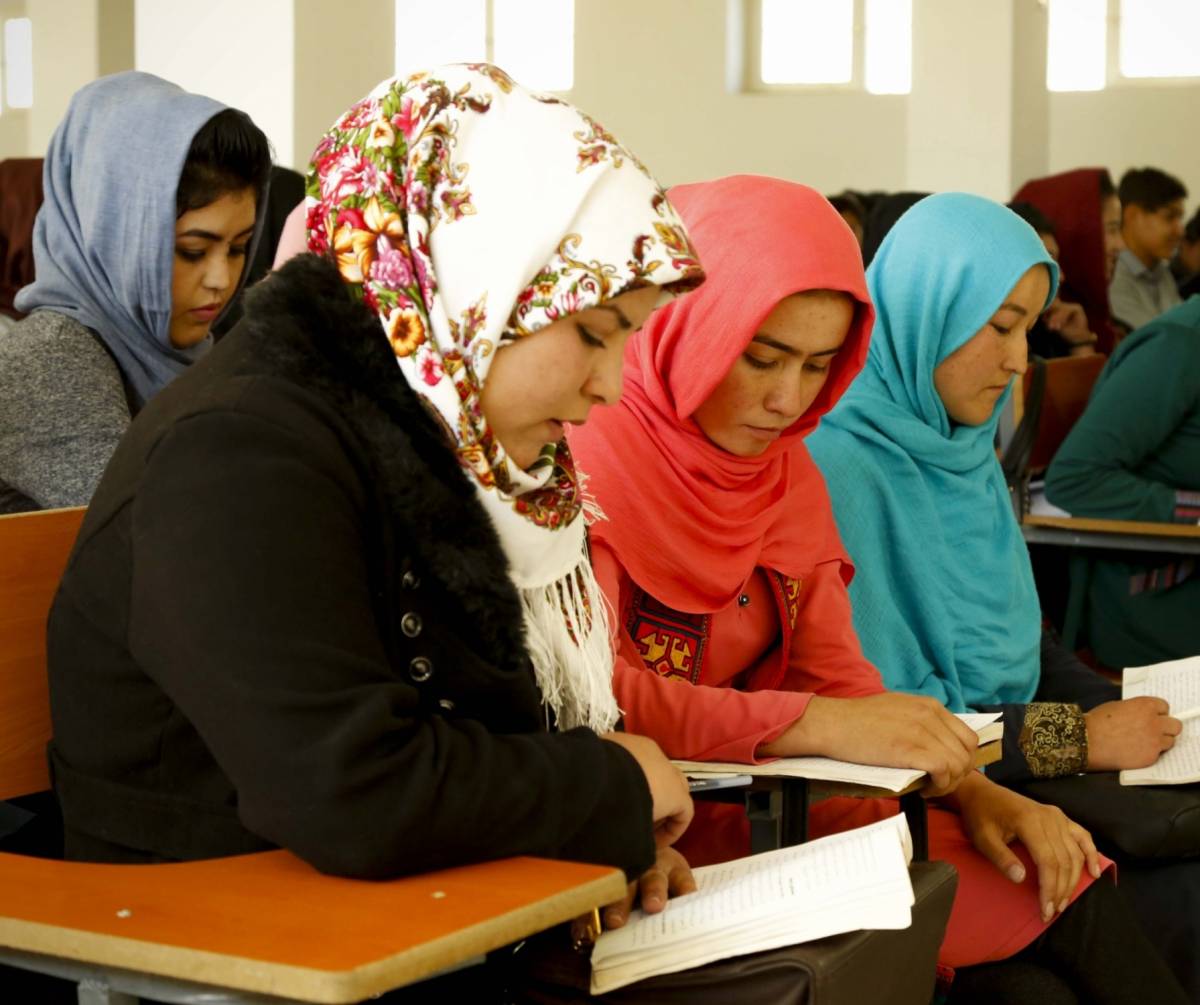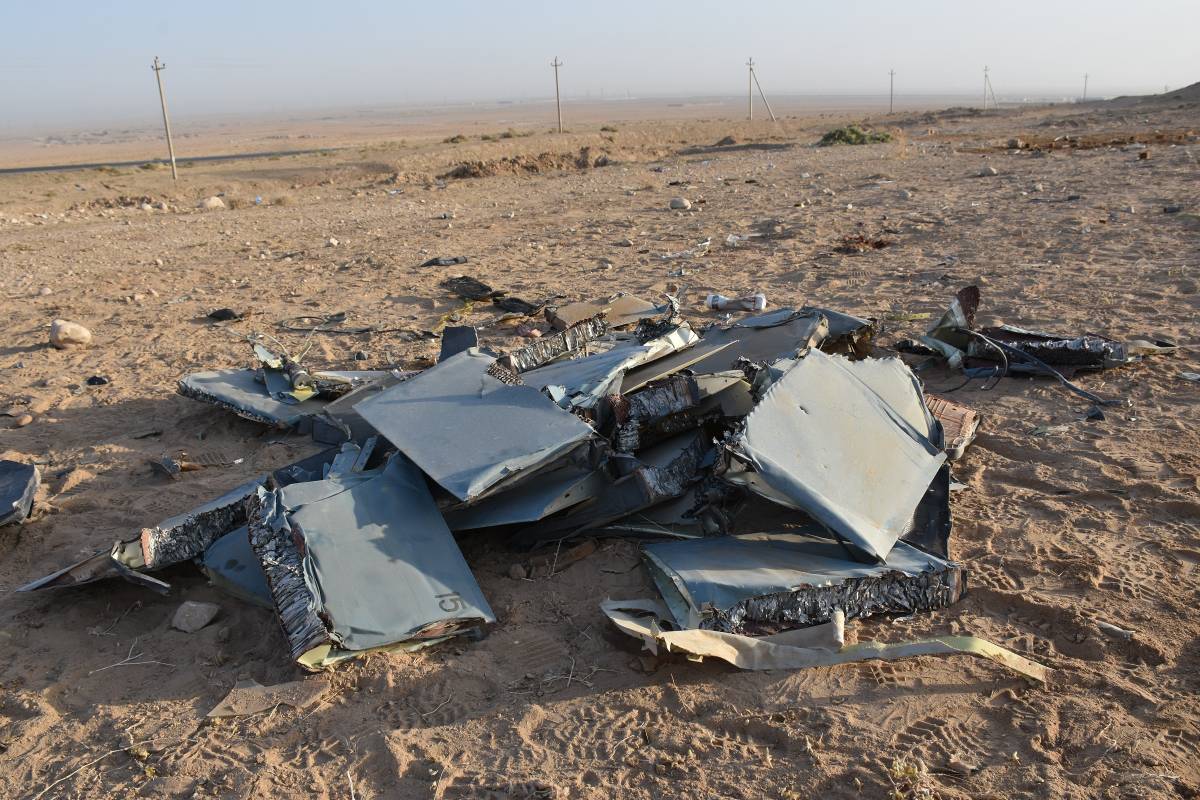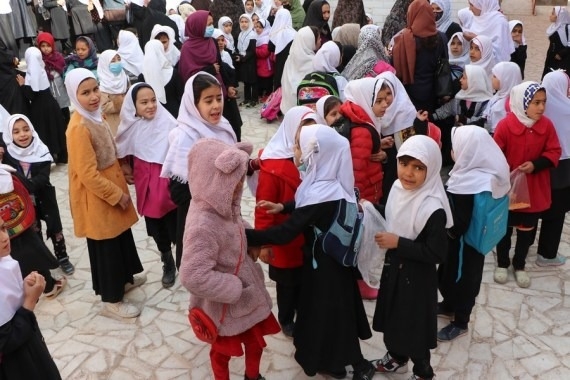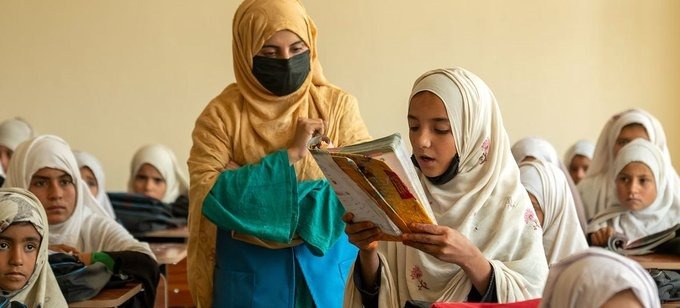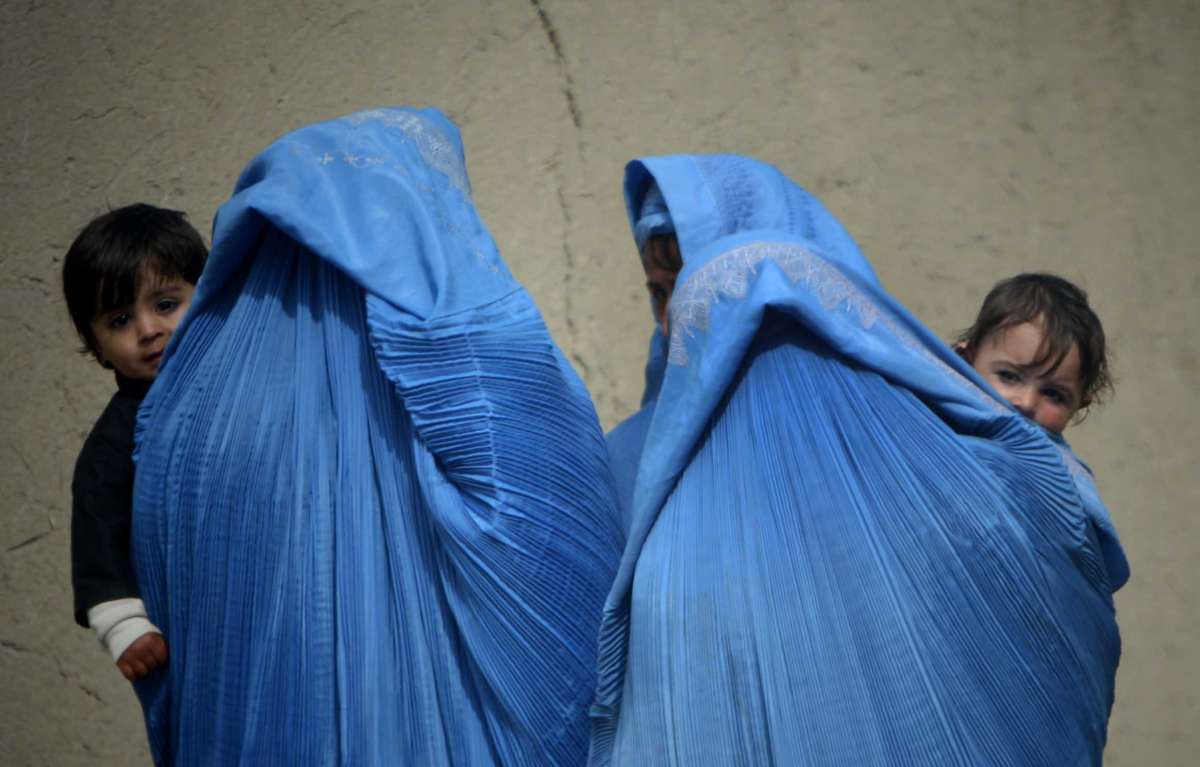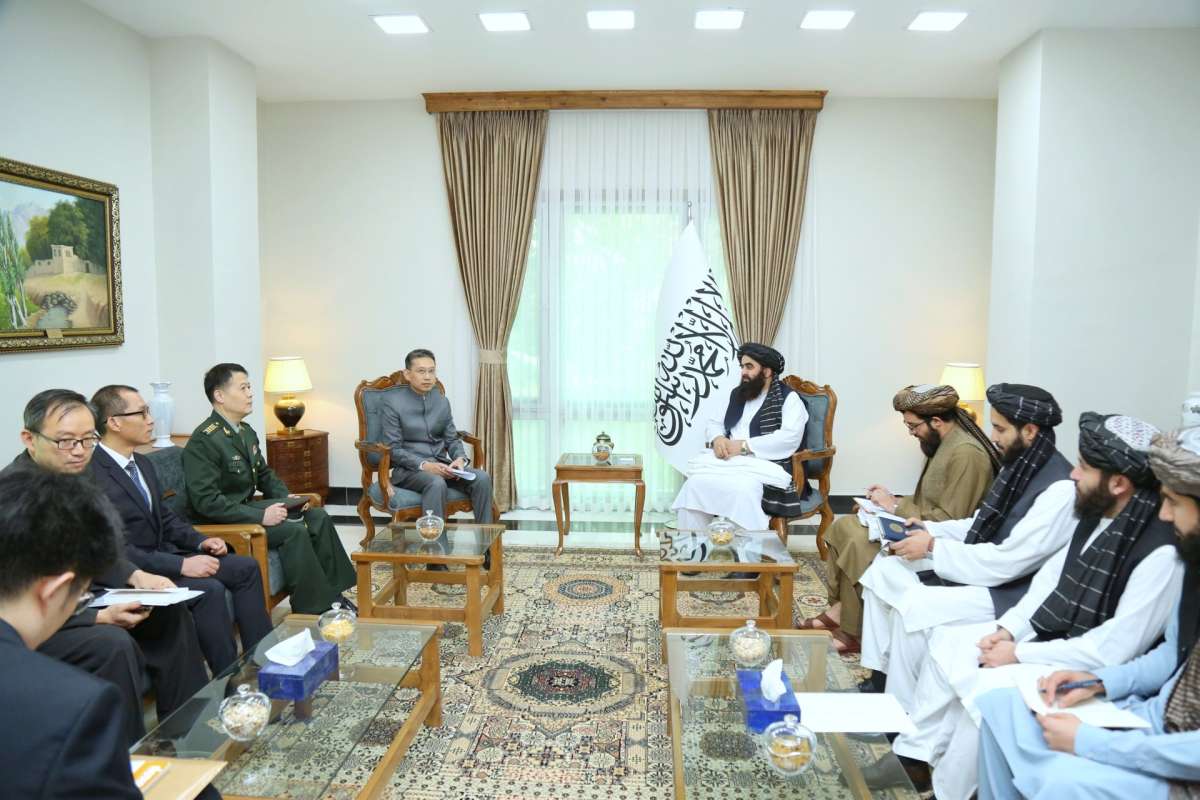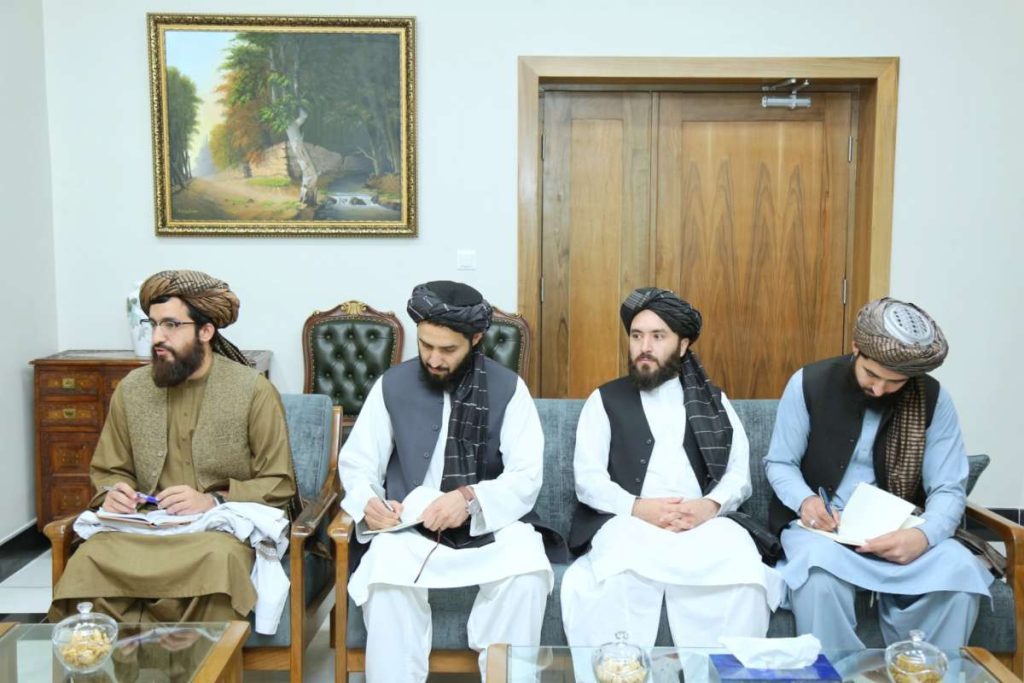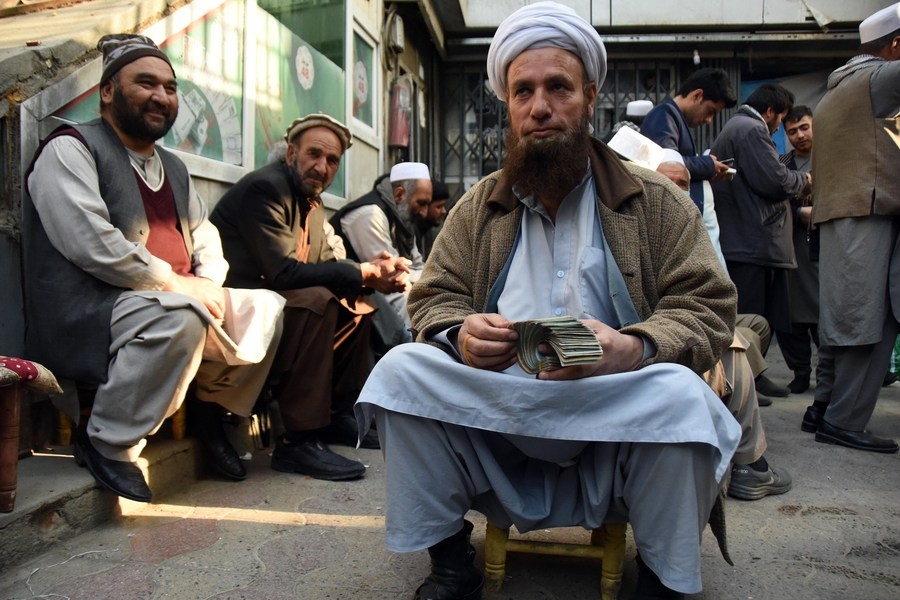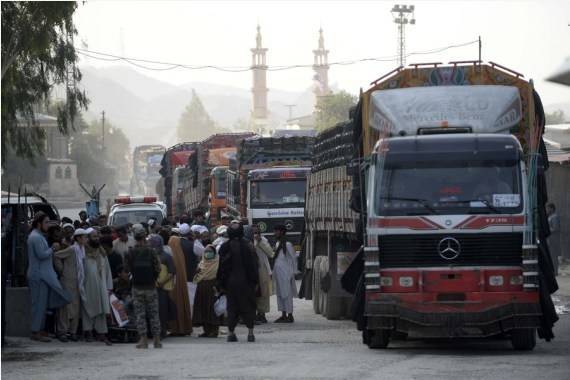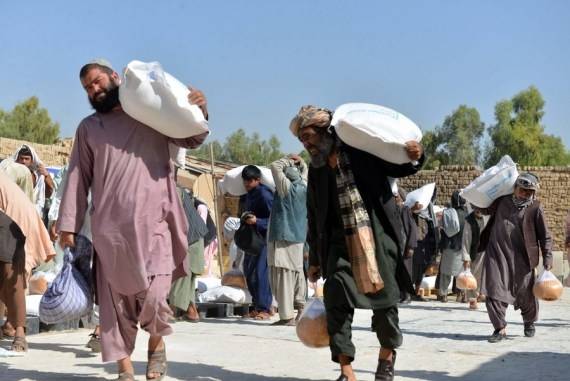Over the past two years, Afghanistan has witnessed a significant gender gap emerging after the rise of the Taliban to power…reports Asian Lite News
The United Nations held a session to recognize the “gender apartheid” in Afghanistan under the Taliban rule, for the first time as part of their efforts to support human rights, Khaama Press reported.
Representatives from different countries attended the session, and the speakers referred to the current situation in Afghanistan, after the return of the Taliban, as an example of “gender apartheid” and called for practical actions to end this situation.
This session took place on Friday. It featured speeches by Richard Bennett, the UN Special Rapporteur for Afghanistan; Rina Amiri, the US Special Representative for Afghan Women’s Rights; Adela Raz, former Afghan representative to the UN; Melanie Weaver, the US Deputy Representative for Global Affairs, and several other country representatives, on the sidelines of the 88th UN General Assembly.
Richard Bennett remarked that the global community has betrayed the women in Afghanistan, adding that the current situation in Afghanistan can only be remedied through practical actions, not condemnations and expressions of sympathy.
It should be noted that the activism of women’s rights advocates, which began with the resurgence of the Taliban to power in Afghanistan to recognize gender apartheid officially, is ongoing and has recently been accompanied by hunger strikes by some girls in European countries and Pakistan, Khaama Press reported.
Hunger strikes by Tamana Zaryab Paryany, and her supporters in Cologne, Germany, the silent hunger strike of Mina Rafiq in Norway, the hunger strike of Mohra Fabi in Sweden, and a collective hunger strike by women’s rights activists in Islamabad, Pakistan, have recently joined the campaign of women’s rights activists. Their common demand from the global community is to recognize “gender apartheid” in Afghanistan.
These protests have led to a meeting hosted by the Un, and the discussion of gender apartheid in Afghanistan has been scrutinized. Richard Bennett, alongside assessing the situation of women in Afghanistan, also called for preparing a report to address technical questions that may arise in the UN Security Council regarding gender apartheid in Afghanistan, according to Khaama Press.
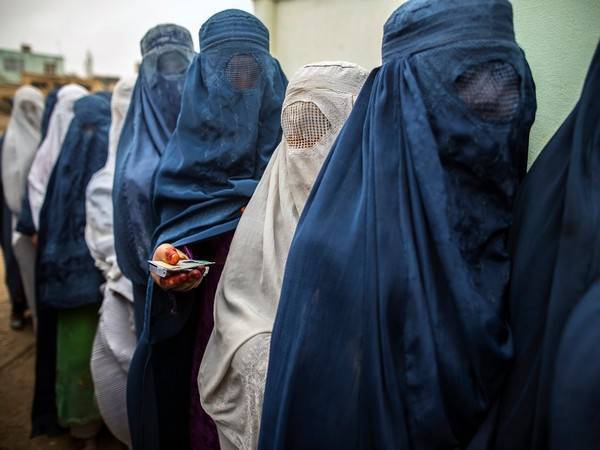
Over the past two years, Afghanistan has witnessed a significant gender gap emerging after the rise of the Taliban to power, resulting in an unprecedented disparity in access to resources, opportunities, and social, economic, and political rights.
Recently, a group of women known as the “Window of Hope Women’s Movement of Afghanistan” has also called for the recognition of “gender apartheid” in Afghanistan. They emphasized that the United Nations and human rights organizations breaking their silence and taking action to combat gender apartheid in Afghanistan are crucial, Khaama Press reported.
Meanwhile, the UN Human Rights Council’s report on the situation of women in Afghanistan has confirmed the existence of “gender apartheid” in Afghanistan and has described “sexual abuse and harassment” as continuing to lead to “sexual abuse and harassment,” which is a crime against humanity, and its occurrence in Afghanistan obliges international criminal courts to intervene.
Notably, with the resurgence of the Taliban in August 2021 in Afghanistan, the country’s educational system has suffered a significant setback. As a result, girls have been deprived of access to education, and seminaries or religious schools have gradually filled the void left by schools and universities.
Afghanistan’s women have faced numerous challenges since the Taliban returned to power in 2021. Girls and women in the war-torn country have no access to education, employment and public spaces.
A startling 80 per cent of Afghan girls and young women, who are of school-going age, are currently denied access to education under the Taliban regime in Afghanistan, a new report by Care International stated, according to Khaama Press.
It has been more than two years since girls above grade six have been prohibited from attending schools in Afghanistan, and it is unclear when those doors will reopen, Tolo News reported.
Afghanistan remains the only country to ban girls’ and women’s education, resulting in a substantial economic toll of approximately USD 5.4 billion. (ANI)

